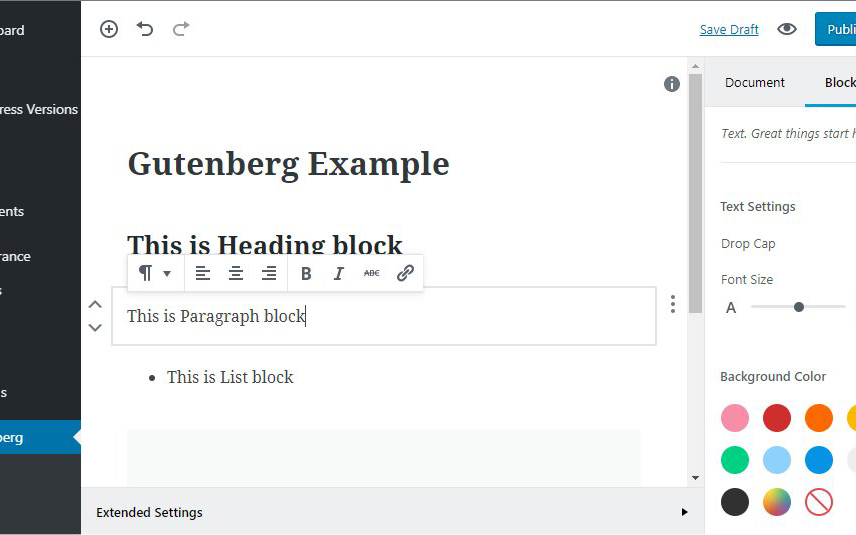The release of Gutenberg is almost upon us. The Classical editor of WordPress is being replaced by the more UI focused Gutenberg. The whole thing is going to get more interactive and easy-to-use (at least that’s what I hope). But with the advent of Gutenberg, there is also a bit of hesitation among WordPress users if switching to Gutenberg make their sites go haywire. Here, I’ll try to answer that question and explain how to correctly transition from Classical Editor to Gutenberg without suffering any damage.
-
Your Content is safe
First of all, forget about any permanent damage to your site. Your data is not going anywhere. Your hard-work is safe and secure (unless you accidentally delete some of it while fiddling with the Interface). The old content you have generated using the Classical Editor is going to stay as-it -is without any changes. But the content you are going to add after the update is going to see some changes. There are more features and options to add more stuff to the content.
-
Update your Theme
Most of the hard work is at the Theme Developer’s end. Although making a Theme Gutenberg Ready is quite easy, there needs to be some compatibility specified in the theme. So, don’t forget to update your theme to the latest version where the developers have added support for Gutenberg Editor. Although the site will work nicely but there might be some features that might not work as expected.
-
Plugins are unaffected (mostly)
If you are using plugins on your site, don’t forget to update them to the latest version as well. Although most of the plugins are going to remain unaffected with Gutenberg but some plugins such as Gallery, Page Builder or other plugins related with content creation and alignment might need to be updated. So, do update your plugins to the latest version. WooCommerce has also introduced special Product Blocks making it very easy to add products to the content of Posts and Pages.
-
Page Builders
Now, let’s talk about the Page Builders. If you have been using Page Builders to create content on your site, it’s going to remain as-it-is and there will be no change in them. Gutenberg is a prospective page-builder in itself which can be used to create future posts and pages with the same interactivity as a page-builder. But the previous posts and pages created by a Page Builder are going to remain the same.
Gutenberg is a great step forward towards making WordPress much more Interactive and User-Friendly. Although Gutenberg has some minor issues right now, but it can be a great addition to WordPress once they are dealt with. WordPress Users were hesitant to switch over to Gutenberg, partly because of the adaptability factor and that it was buggy during the testing phase but now it seems world is getting used to Gutenberg and the possibilities it offers for Theme Developers and Website Owners.
